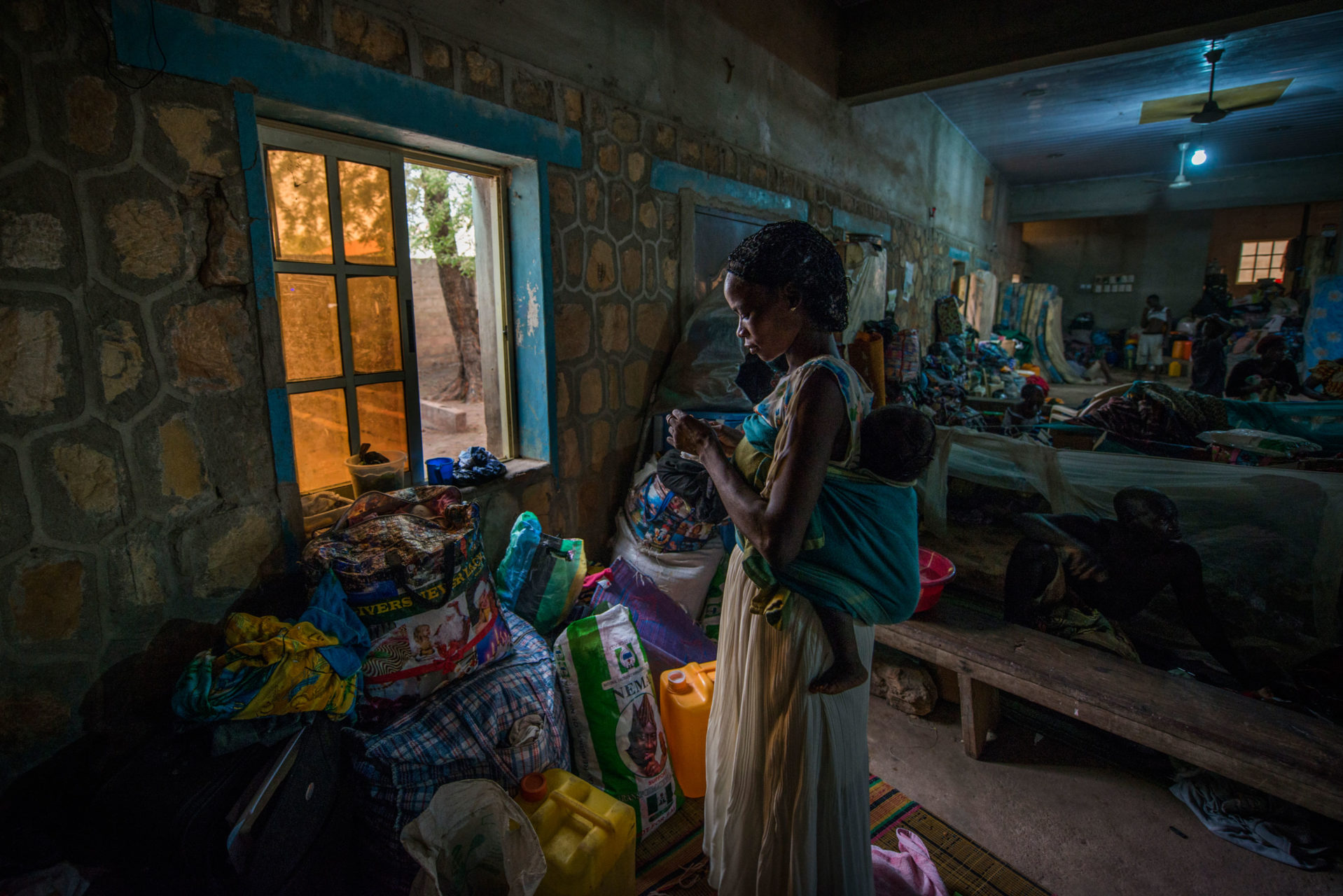
Engaging With the Global Humanitarian Shelter and Settlements Sector
With increasing need in humanitarian aid but limited funding availability, the humanitarian system needs to consider creative and innovative solutions to provide support to populations in need.
Considering the wider impacts that providing shelter & settlements (S&S) assistance can have on other areas of people’s lives, encouraging more multisector, multistakeholder programming through frameworks such as the Settlements Approach and enabling local actors to lead during a humanitarian response are potential solutions to this need.
In 2022 and 2023, InterAction’s S&S team is planning several initiatives, including a local leadership in humanitarian response initiative, a climate and environmental impacts initiative, Wider Impacts training, and Settlements Approach training. To help further these initiatives, and as part of its general workstream, InterAction engages with the global humanitarian S&S sector.
Global Shelter Cluster Annual Meeting
In July 2022, InterAction attended the Global Shelter Cluster Annual Meeting (GSC). The GSC is an Inter-Agency Standing Committee coordination mechanism that works to enable better coordination among shelter actors so that people who need shelter assistance can get help faster and receive the right support.
Over 100 U.N., donor, and local and international NGO S&S practitioners participated in the GSC annual meeting. They discussed the future of humanitarian coordination and response—moving from relief to dignified shelter, as well as climate and environmental impacts in shelter response.
The GSC also presented the evaluation of its 2018–2022 strategy and defined its upcoming research priorities, including exploring the barriers to longer-term recovery and determining when cash and market approaches in a shelter response are appropriate. The answers to these questions will hopefully enable the sector to provide more quality assistance to those in need. Participants were then asked to help define the future strategic direction of the GSC.
Shelter Meeting 22
The Shelter Meeting is an annual global shelter sector forum organized by Shelter Centre and available to a broader range of participants, especially those from the Global South. InterAction sponsored this year’s Shelter Meeting, which focused on local leadership during a humanitarian response.
InterAction highlighted the work of the Shelter & Settlements Working Group (SSWG), which is currently the only regular meeting platform available to global S&S practitioners. Over the past 10 years, the SSWG and its members, generously supported by USAID/BHA, have collectively influenced the sector on various issues, including house, land, and property issues; longitudinal impacts; cash and shelter; trainings; sustainable development goals, wider impacts; and the Settlements Approach.
To help formulate the future focus of the SSWG and InterAction’s S&S workstream, we asked participants to define the most practical and impactful transformation the sector should make. Responses included:
- Increased environmental focus
- Assisting long-term recovery
- Multi-sectoral collaboration in coordination and in practice
- Improved data analytics and information management
- Advocacy on Wider Impacts of S&S and the Settlements Approach
- Support for community-led responses and decision-making
Many of the responses are in line with the current or planned activities of the SSWG, including locally-led responses and climate and environmental impacts, as well as continuing its work on the wider impacts of S&S assistance and the Settlements Approach by developing online trainings.
InterAction also hosted a group consultation on its Local Leadership in Humanitarian Response initiative. While there is no agreed-upon definition for the term “localization,” many conversations focus on directly funding local organizations. While funding is important to enable the participation of local actors in the global humanitarian system, directly funding local organizations does not ensure they have a decision-making role during a humanitarian response. The InterAction initiative hopes to focus on local solutions, leadership, and decision-making during a humanitarian response, with additional consultations at the national level in the coming months.
Our panel included Leeanne Marshall, Shelter Technical Lead at the Australian Red Cross. We highlighted the work of the Australian Red Cross as a good practice example of an international NGO supporting its local staff to lead on responses in-country, the focus of our local leadership initiative. In describing their work with local partners, Leeanne Marshall noted,
In order to understand how to better support the essential role of local actors in making decisions and leading in humanitarian response, Australian Red Cross has been undertaking action research and working with local partners to understand some of the key barriers and enablers to making this happen. Through identification of opportunities from this research, along with changing the way we work and our approach to partnerships, we hope to continue to advance the localization of humanitarian action.
Interns at the Shelter Centre presented preliminary findings from a pilot survey they conducted on behalf of InterAction. Respondents to the survey noted key challenges and obstacles that local organizations face, including a lack of resources, a lack of trust, exclusion from decision making, lack of leadership training and mentorship, and lack of access to coordination mechanisms. In their initial conclusions from this survey, the Shelter Centre interns highlighted:
- Funding is central to and at the core of leadership.
- Local organizations want INGOs to help them strengthen existing gaps, but want to be involved in the decision-making.
- Training was identified as a key resource for building capacity.
These conclusions confirm what InterAction heard in our initial consultations with national staff. We hope to use the experience of this pilot survey when designing and conducting the formal survey and interview process in our initiative.
This conversation was just the beginning of the Shelter and Settlements team’s initiative on local leadership in humanitarian response. For more information on this initiative or to get involved in the Shelter & Settlements Working Group, please contact Juli King at jking@interaction.org.








